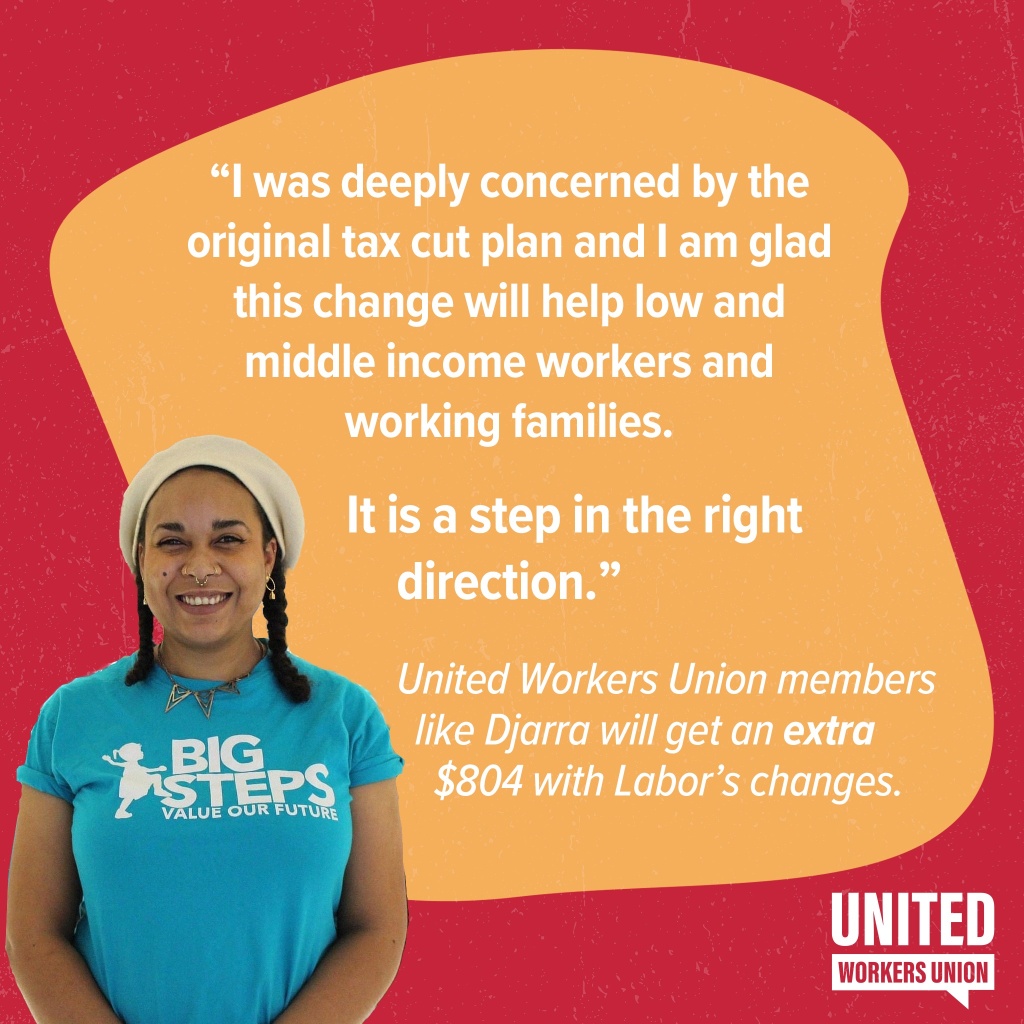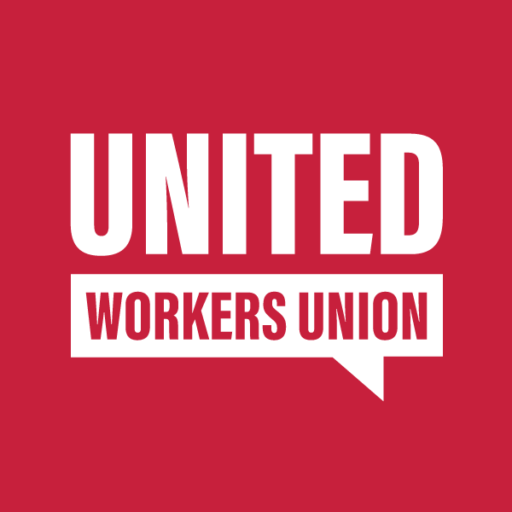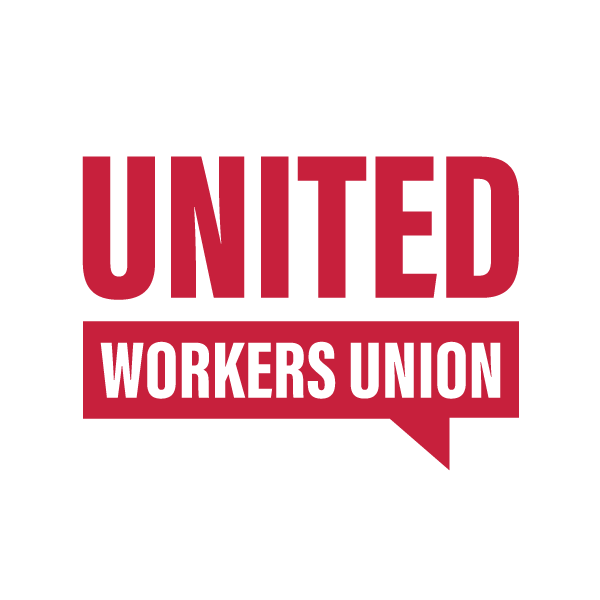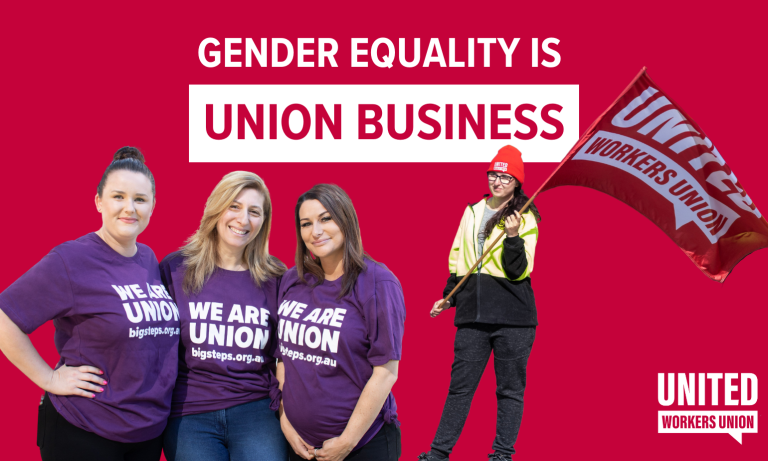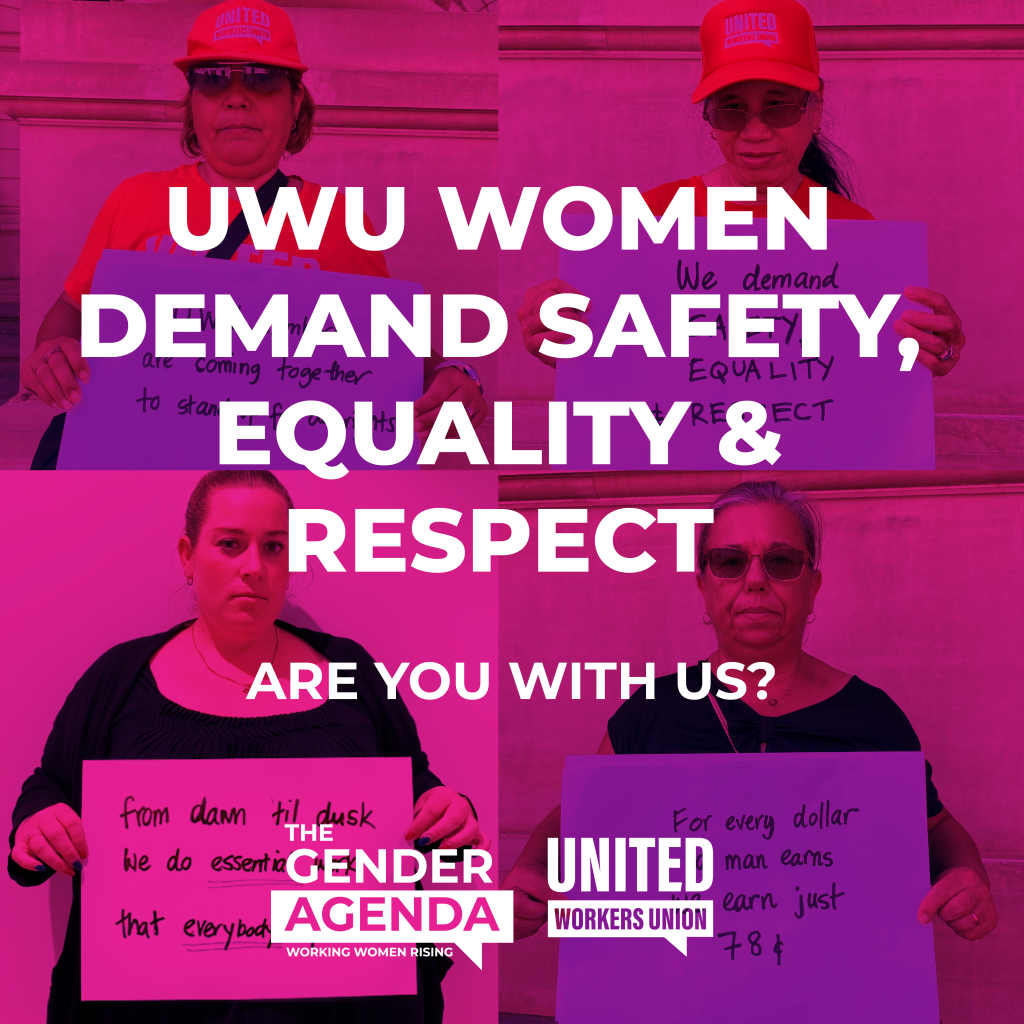Gender equality is union business
Why women are front and centre in March
International Women’s Day, held every year on 8 March, is historically a day for working women to come together and demand equality. It began as a day of protest over 100 years ago, and our union proudly continues that legacy.
Each year, while corporate Australia hosts International Women’s Day breakfasts and morning teas featuring pink cupcakes, our union takes action on key issues faced by women workers. This year is no different.
What are we fighting for?
Safe workplaces free from sexual harassment and gendered violence
Workplace sexual harassment is alarmingly common. National surveys suggest that about one in three workers have experienced sexual harassment at work, and that women are far more likely to be harassed than men.
Sexual harassment disproportionately affects women from migrant and refugee backgrounds. Last year, a report found almost 50 per cent of migrant and refugee women have experienced sexual harassment.
The report also found women who were working in temporary or casual roles were more likely to experience workplace sexual harassment.
Twelve women working on farms in Australia, known as the Perfection 12, are bringing one of the largest sexual harassment cases to the Federal Court and attended court for mediation last Friday in Adelaide.
With suppression orders in place to protect the identity of the women, supporters gathered across from the court building to show their solidarity and send a message to Perfection Fresh that union members and the community are committed to fighting this campaign until the company agrees to better workplace and human rights for all workers in Perfection Fresh’s glasshouses.
UWU Farm Sector Director Caterina Cinanni said,
“Job security and the right to speak up and support each other in this environment are key factors for eliminating sexual harassment and gendered workplace violence,”
“The ‘Perfection 12’ are fighting for job security, improved union rights and safety because they want these changes for all workers that pick and pack the fruit and vegetables for Coles and Woolworths – and for workers everywhere.”
If you haven’t heard their amazing album yet – Bread and Roses | Bret Mo Roses – officially launched last week, listen to it here. While you’re there, find out how you can take action and show your support for these gutsy UWU women.
Equal pay in female-dominated industries
UWU members working in caring sectors like Aged Care and Early Childhood Education are fighting for equal pay. The wages in these industries are outrageously low, much lower than in sectors typically dominated by men. This shows that our society doesn’t place equal value on work usually performed by women. But UWU members are speaking out and fighting to change these outdated attitudes. They’re making progress!
Union members won a 15% pay increase for many workers in aged care, disability support and home care, but are still fighting to ensure that support staff see fair increases too.
Early childhood educators won the right to bargain across multiple employers, giving members the opportunity to improve wages across the entire sector. The bargaining process has begun and UWU members look forward to a government commitment to fund the outcome of a Multi-Employer Bargaining Agreement once finalised.
At the latest Multi Employer Bargaining meeting on Friday 23rd February, significant progress was made on the Federal Government funding a wage increase. Now that the Federal Government is listening, educators are giving them one last chance to deliver a real wage increase for the sector.
BUT if this takes too long, educators everywhere will take whatever action is necessary to win a real wage increase!
Right now, we’re keeping up the pressure by sending the PM postcards to tell him why educator’s wages mean so much to us. If you’re an early childhood educator, send Anthony Albanese your message here.
What are we celebrating this year?
Achieving gender equality is a slow process. The first International (Working) Women’s Day was celebrated in Europe in 1911. Over 100 years later, we‘re still fighting. It’s not unreasonable to be disheartened at times. And that’s why it’s so important that we celebrate what we’ve won while continuing our fight for equality.
Publication of gender pay gap data
As of this week, thanks to reforms passed by the Albanese Labor Government, private companies with more than 100 employees are required to provide data showing the difference between what men and women are paid.
On average, women in Australia make 78c to every dollar a man earns. This new data breaks down gender pay gap by employer, so we can see which companies have the most work to do.
You might be wondering why finding out that at QANTAS women earn a whopping 37% less than men is a win. But in the UK, where they’ve had similar requirements since 2017, the gender pay gap has reduced.
Requiring employers to compile and publish this data means they must pay attention to it. It has increased awareness, and of course, companies with very high gender pay gaps worry about damage to their reputation and are forced to take measures to fix the disparity.
We had a quick look at a few of the big employers where lots of our members work. Interestingly the gender pay gap is below the national average at employers like Crown Casino, Fonterra, Bupa Aged Care, Inghams and Wilson Security. It’s no coincidence that where there are organised union members, the pay gap is smaller!
If you work for a private company with more than 100 employees, you can look up your employer here.
Positive duties on employers to prevent workplace sexual harassment
Despite the frequency of workplace sexual harassment incidents, until recently employers were not required to do anything until after a worker reported sexual harassment.
But now employers have a “positive duty” to prevent workplace sexual harassment. This means they must put policies and procedures in place to stop it from happening, rather than simply reacting when it inevitably does.
Find out more about positive duties and how we can prevent workplace sexual harassment at this month’s member workshop! Register now to join us on Wednesday 20 March to hear more about these changes and how we can take action.
How can you join the fight for gender equality as an UWU member?
Join our brand new campaign – The Gender Agenda!
We encourage ALL UWU members to sign up and stand together to demand safety, equality and respect.
Pledge your support now. As a campaign supporter you’ll get:
- The latest campaign news.
- Expert advice about your rights.
- Info on how you can take powerful action to help win safety, equality and respect for all women!
Find more information and sign up to join the campaign here.
Celebrate IWD with your union
Every year on 8 March UWU women across every industry come together to celebrate and take action for International Women’s Day. If you’re in (or can get to) Brisbane, Sydney, Melbourne, Adelaide or Perth, register now to come along.
It will be an excellent day of union women speaking out, making plans and taking action, don’t miss it! Registrations close on 5 March.
Come to our March Member Workshop
For this month’s member workshop on Wednesday 20 March, we’ll hear from Carolyn Dunbar, Women’s lead at Victorian Trades Hall Council about Preventing Workplace Sexual Harassment. She’ll explain what sexual harassment is, employers’ new obligations to prevent it and how we can take action in our union. Register now to attend live, or to watch on-demand at a later date.
We encourage ALL UWU members to join the fight for gender equality, because the more equal our society, the better it is for everyone.
WORKPLACE CHANGES AND CONSULTATION

Did you know that with some changes to our work, like alterations to rosters or normal working hours, use of technology, redundancy and place of work, our employers should consult with us?
Our Awards, agreements, employment contracts, and the Fair Work Act spell out when employers need to consult.
Generally, when they’ve decided to make a “major workplace change” that will have a “significant effect” on workers, they need to talk to us about it. Also, if they’re proposing to change your regular roster or hours of work.
But, like lots of employment rules, it’s not all completely clear cut. For instance, what we consider a major change, and what our employers think of as major isn’t always the same. Similarly, when we think a change has a significant effect our employer might not. So, if you’re unsure talk to your delegate, organiser or call your local UWU office for advice.
When employers do consult with workers, we have the right to:
- Appoint representatives
- Discuss changes as soon as possible (not weeks or months later)
- Get information in writing (unless it’s confidential or commercially sensitive)
- To expect timely and genuine consideration of matters we raise.
If you’re interested in more information about when employers should consult us and how, watch the recording of our recent member workshop here.
ALP cost-of-living relief will help uwu members
This week the Albanese Labor Government passed into law cost-of-living relief for millions of Australians.
Under rebalanced tax cuts, millions of Australians will get an extra cost-of-living bonus of $804.
The people who are most affected by the cost-of-living crisis are essential workers in low-paid industries including early education, aged care, logistics, cleaning, security and many others.
Labor’s changes to the Stage 3 tax cuts will see almost all UWU members better off. Check out how much better off you will be HERE.
The Morrison tax cuts were an unwanted legacy that did not live up to the Australian ideal of giving people a fair go.
Want to make your voice heard in politics? Let us know here.
